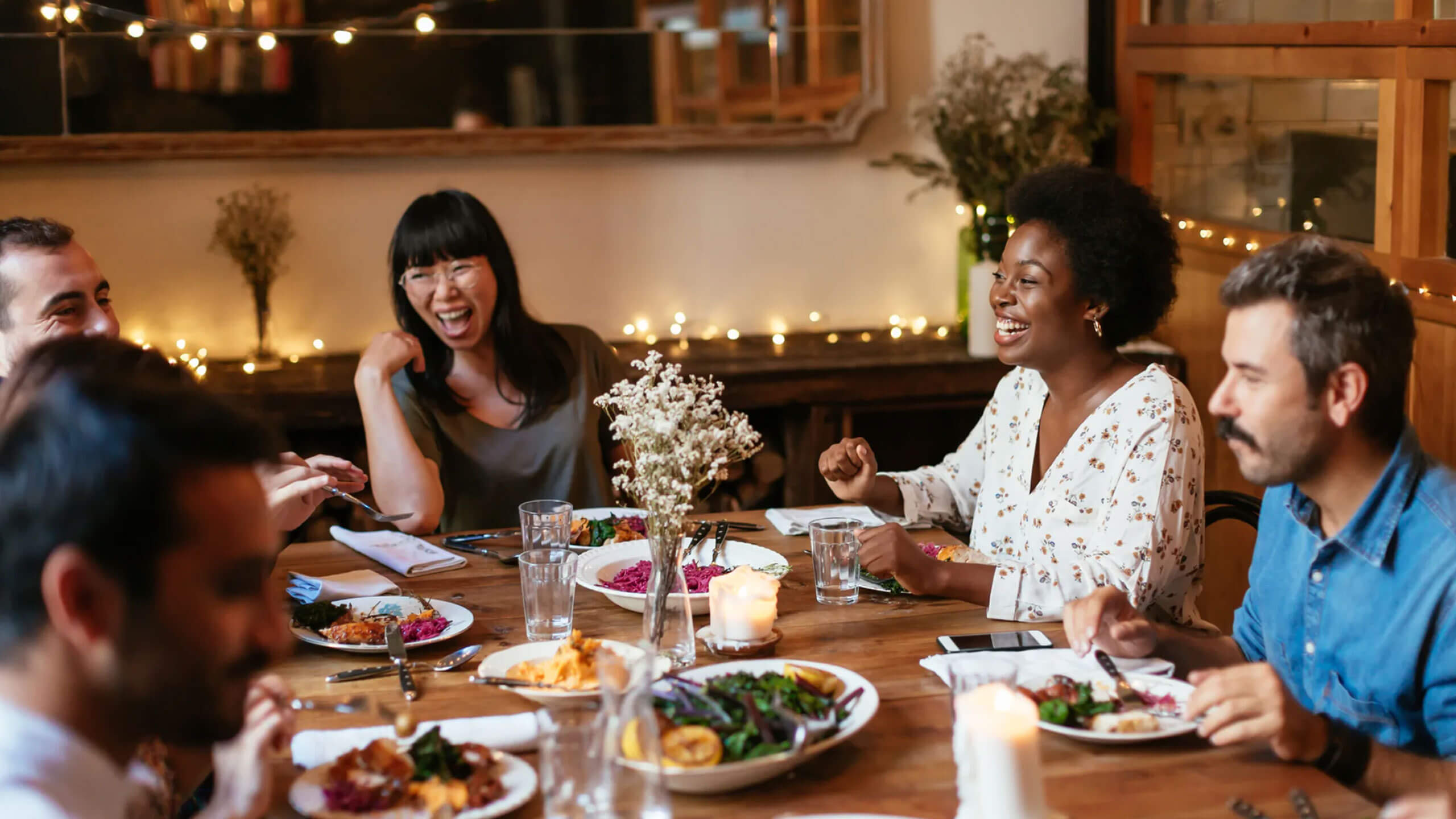Originally published @ MindBodyGreen
By Sarah Regan
Growing up, we have school, sports teams, and extracurriculars to fill our social calendars. But as we get older, opportunities to meet new people may seem few and far between. Friends settle into marriages and have children; work life gets busy; maybe you moved to a new city recently or are simply introverted. All of these things may leave us wondering, Can I really make a new friend?
We’ve all been there—but the truth is, it is totally possible to make new friends, no matter how old you are. Here’s advice on how to make friends as an adult, from three relationship experts:
1. Approach with positivity.
According to board-certified psychiatrist Roxanna Namavar, D.O., the way we perceive the world frames our whole life. If you go into social scenarios or approach making new friends with negativity, you aren’t going to get too far. This is the law of attraction 101—we have to focus on what makes us feel good. If all we focus on is our lack of new friends, we’re reinforcing that reality.
“When we start to focus on doing things that make us feel good and engage in a way that increases positive feelings, it makes it easier to see and connect with other people we resonate with,” she adds.
2. Create a life for yourself that you enjoy.
To that end, Namavar stresses that the best thing you can do for yourself to make new friends is to create a life you enjoy. “Like attracts like,” she notes, and “the more engaged we are with life, the easier it is to go out and meet people. When you do things that make you feel good, you end up finding people who enjoy the same things.”
3. Find a group that interests you.
Yes, this may be a little difficult in the age of COVID-19, but there are still plenty of virtual interest groups you can take advantage of right now. As psychologist Nicole Beurkens, Ph.D., explains to mbg, “One of the easiest ways to connect with people who might be friendship material is to engage in group activities around your interests.”
“One of my favorite ways to make friends as an adult is Meetup,” says somatic psychologist Holly Richmond, Ph.D. “There’s also My Social Calendar.”
Engaging in things you enjoy, whatever they are, “can reduce fears of awkwardness by giving you something to focus on besides the people involved,” Beurkens adds.
For a little inspiration, here are just some of the activities you can consider, offered by Beurkens, Namavar, and Richmond: Take a new yoga class, join a local hiking group, try a cooking class, attend a spiritual or religious service, practice with the church choir, check out a local sports club, join a committee at work, scope out a crafting workshop, join a book club or volunteer with a local charity.
4. Lead with curiosity.
When we’re meeting new people, our insecurities can get the best of us, Richmond explains—but it goes both ways. It’s important to remember a new friend is just a person like you, who’s also got their own insecurities.
“Instead of talking about yourself or thinking you have to impress this person, lead with curiosity and ask questions about them,” she says. “We’re all so in our head, so if you can help get someone out of their head a bit, it’s generally really endearing.”
5. Look to your network.
In the age of social media, there are innumerable casual acquaintances always available at our fingertips. Why not reach out to one of them? As Richmond tells mbg, relationships are always evolving: “You can know someone for years and one day just click,” she says. “Timing is everything, so give those old relationships a new chance or a new view.”
Mutual friends are a great place to start as well, Namavar notes. “Sometimes it makes it easier to be social if a friend is with you that you already feel comfortable with,” she says. Plus, if they already get along with one of your friends, there’s a good chance you’ll like them too.
6. Say yes.
You might have to go outside your comfort zone and try new things to make new connections. “The key is to be willing to put yourself out there to engage with other people you don’t know,” Beurkens says. Of course, this can be intimidating, “especially for people who are shy or experience some social anxiety,” she adds, “but taking the risk to meet new people is what leads to the reward of developing new relationships.”
As much as your inner social butterfly allows, say “yes” when you receive an invite. You never know until you try, and the more you put yourself out there, the more people you’ll meet. Richmond recommends letting friends and family know you want to make new friends as well, “So they can put feelers out for you, and invite you to things they’re going to.”
7. Don’t be afraid to initiate.
Making a friend is a two-way street, so don’t be afraid to initiate. The other person could be just as hesitant to reach out, too. Things like a simple compliment or finding a similar interest are great places to start, Namavar says. “Also, asking somebody for a little bit of help,” she adds, “opens the door to soften the interaction.”
Similarly, if you’re single and dating new people but it’s not working out romantically, you can always try initiating a friendship. Richmond notes she knows lots of people who’ve become friends with someone they went on a date or two with but didn’t vibe with romantically. “Go into dating with an open mind—it could be something different,” she says.
8. Get vulnerable.
“We’re programmed to be afraid of rejection, but no connections that are worthwhile happen without vulnerability,” Richmond says. For this reason, having a strong enough sense of self so you can be OK with a friendship not working out is important. Don’t be afraid to be yourself—otherwise, how will you make friends who see and accept the real you?
“Not everyone’s going to like you, but as we get older, you can accept that not everyone needs to like you,” she adds. And when you live your truth, “then you can find the people who do,” she says.
9. Be patient.
And lastly, know it takes time to build strong relationships. Be ready to give things time to naturally unfold and for the friendship to blossom. It’s not a marathon—and when it comes to friendship, it’s always quality over quantity. “The key is to have at least one or two people in your life you can rely on and feel connected to,” Beurkens notes. You don’t have to overwhelm yourself by booking your calendar to the brim. Start by simply finding one new person to reach out to, and take it from there.
The bottom line.
Friendships are one of the most enriching parts of our lives, and as we get older, making new ones can seem like a challenge. But if you’re seeking new, meaningful connections in your life, it starts with a commitment both to meeting new people and a commitment to yourself.
Once you decide to make new friends, put yourself out there and get involved in an activity that really lights you up. You’re bound to meet someone new. Tell that cool girl in your yoga class you like her leggings, or introduce yourself to your neighbor down the street that you’ve always thought seemed nice. Every interaction is a chance for a new connection when you’re open and looking.





